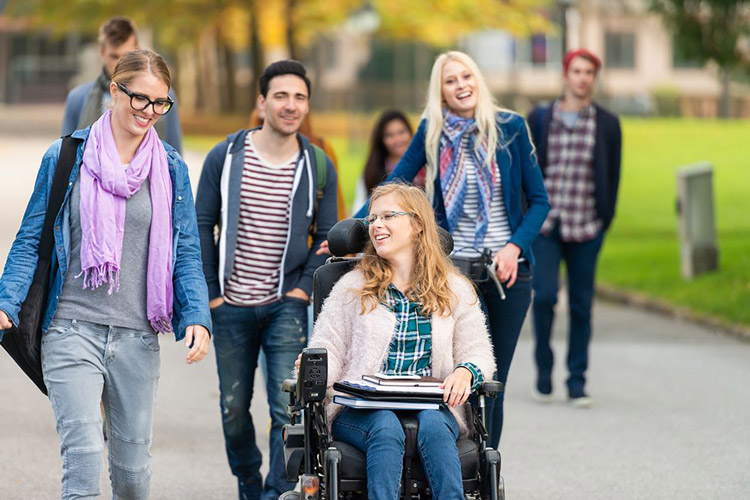Adults with intellectual or developmental disabilities (I/DD) have several options when it comes to adult education. There is no universal, one-size-fits-all solution, and choices vary state-by-state.
Many states offer inclusive college programs for students with intellectual disabilities. In fact, every state must have programs and agencies that advocate for students with disabilities. Every state has a protection and advocacy program, parent centers, and a state education agency. These can be excellent resources for families considering post-secondary (after high school) education (and not all college programs require a high school degree).
Post-secondary education options at colleges and universities vary widely in support and services provided to their students with I/DD, especially those institutes of higher education that take into consideration the student’s needs and are mindful of avoiding prescriptive or limiting approaches when developing postsecondary education programs.
Think College, a national organization dedicated to developing, expanding, and improving inclusive higher education options for people with intellectual disability, has identified nearly 300 two and four-year colleges and universities that include students with intellectual disabilities in educational, independent living and vocational/career programs. Think College also offers advice on selecting schools, preparing for college and paying for tuition.
Colleges and universities today are more cognizant of the rights and needs of students with disabilities enrolled in higher education. Students receive a variety of supports and are typically provided opportunities to participate in traditional college classes with support. They also may participate in internships and other vocational opportunities and participate in college campus life, including belonging to clubs and living in dormitories.
For instance, AbleLight’s College of Applied Learning at Concordia University in Mequon, Wisconsin is a two-year, post-secondary certificate program. Students receive a “blended” model of instruction centered on their intellectual, vocational, social, personal and spiritual growth. Students live on the school campus in integrated residence halls alongside students without disabilities and enjoy full immersion in all aspects of campus life including sports, clubs, spiritual life activities and more.
Here are some recommendations for adults with I/DD considering or preparing for post-secondary experiences from the George Washington University HEATH Resource Center:
- Provide continued opportunities throughout all grade levels to develop independence, self-advocacy, self-determination skills
- Pursue academic and career goals that prepare the student for college and employment expectations
- Assure the student has access to the general education curriculum and instruction utilizing best practices in the least restrictive environment
- Expect to encounter course content and work and be graded with the same expectations as classmates
- Visit a number of sites that offer services and programs for students with disabilities
- Develop transition plans that have clear connection between college and future employment opportunities that provide the student with targeted, meaningful, paid job experiences as an integral feature
Benefits of furthering one’s education are clear: According to PACER’s National Parent Center on Transition and Employment, the development and growth of academic, work and personal skills, independent living, friendships, and self-advocacy are a few of the many positive student outcomes. In addition, Think College outcome data shows program participants are employed post-graduation at significantly higher rates with higher average wages.
A student’s experience should reflect their personal needs and goals: Some want skills that will lead to employment; others explore a new area of personal interest. Some will take several classes, while others attend part-time. College environments provide an array of experiences that most students with I/DD are not afforded during their tenure in public school. They can offer the valuable opportunity to explore and define personal goals of learning, employment, and social connections.

